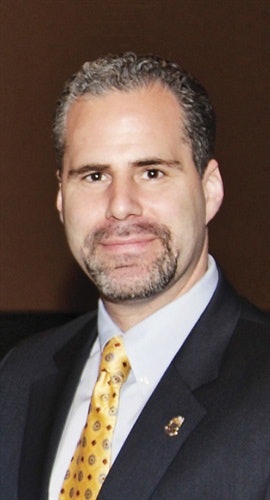
When it comes to the use of e-mail and social media, apparently the rules that apply to law enforcement officers don't apply to former Secretary of State Hillary Clinton. In March, we learned that Clinton used her own e-mail server and Blackberry for both personal and State Department business. In other words, she commingled personal and official business information through her personal e-mail server.
Setting aside the obvious risks associated with such a reckless arrangement, Clinton made a conscious decision to use a personal e-mail account for official business. When law enforcement officers and other government employees do this, we risk punishment for any derogatory business-related statements made on personal e-mail. Apparently, Clinton fancies herself exempt from this standard.
In response to questions posed by Fox News as to whether Clinton "wiped" her personal server, she stated, "Well, my personal e-mails are my personal business." Wrong! Contrary to her spurious assertion, she did not have the right to decide what were personal vs. official e-mails. After Rep. Trey Gowdy (R-S.C.), chair of the House Benghazi Investigative Committee, first requested Clinton's e-mails in 2014, she should have turned over her server to the State Department immediately. Gowdy and the State Department would then have appointed independent, disinterested officials to review all the e-mails for relevance. That's the requirement that would have been imposed on law enforcement officers in a similar situation.
If a law enforcement officer responded to a defense attorney's request for official e-mails or text messages the same way Clinton has responded to Gowdy, the judge would hold that officer in contempt. Picture yourself sitting on the stand, and the judge orders you to answer defense counsel's question as to whether you wiped your e-mails from your storage device. Imagine what would happen if you responded by invoking a condescending tone and declaring, "What, like with a cloth or something?" You'd be held in contempt, and you could kiss your pension goodbye. You aren't entitled to use Clinton's magic server-wiping cloth.
We have been cautioned repeatedly by our union and association attorneys not to use our personal devices for official business because that can make everything on those devices discoverable. This applies to e-mail, text messages, and social media postings. Additionally, we know that any personal information we communicate on a job-issued PDA or computer may be discoverable. We also know that any handheld device we use on the job may have to be turned over to the prosecutor for discovery and subjected to a firewall review. Apparently, Clinton thinks only law enforcement's e-mails should be subjected to such scrutiny.
Clinton had no right nor authority to decide what e-mails were delivered to Gowdy's committee. In her world, laws, ethics, and rules are for little people, but not for Clinton. "People delete their personal e-mails, their work e-mails, whatever e-mails they have on a regular basis. I turned over everything I could imagine," she said to CNN. How does Clinton define "regular basis?" She left office in February 2013, and then conveniently deleted 31,000 e-mails in the fall of 2014. This is not what responsible government officials do.
There has been much debate over whether Clinton deleted her e-mails after receiving a subpoena in March or whether she sent or received classified information on her personal e-mail. After using her magical cloth and admittedly deleting 31,000 e-mails, Clinton turned over her server to the FBI. Irrespective of what the FBI may retrieve from it, Clinton postured herself above the law by not immediately turning over her server when Gowdy first requested her e-mails. Regarding whether she ever sent or received classified material over personal e-mail, it makes you wonder what the Secretary of State would e-mail or receive that is not classified.
In a feeble attempt to appear remotely remorseful for commingling personal and official emails, Clinton now admits that in retrospect she should have kept personal and official e-mails separate. This same epiphany unfortunately didn't include an admission that she had no right to delete any messages from her server after she left office. I guess only law enforcement officers and prosecutors forfeit their right to privacy when they use personal equipment on the job.
Law enforcement officers will never forget Clinton's misguided proclamation on February 4, 1999, that the fatal shooting of Amadou Diallo by NYPD officers was a "tragic murder." Now we all get to watch her feign remorse after she has committed a tragic murder of the rule of law.











